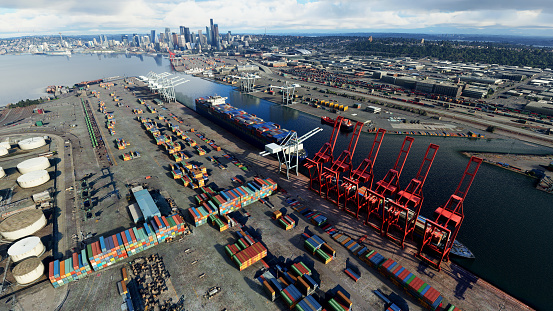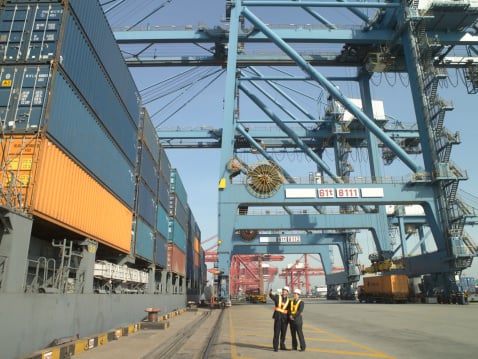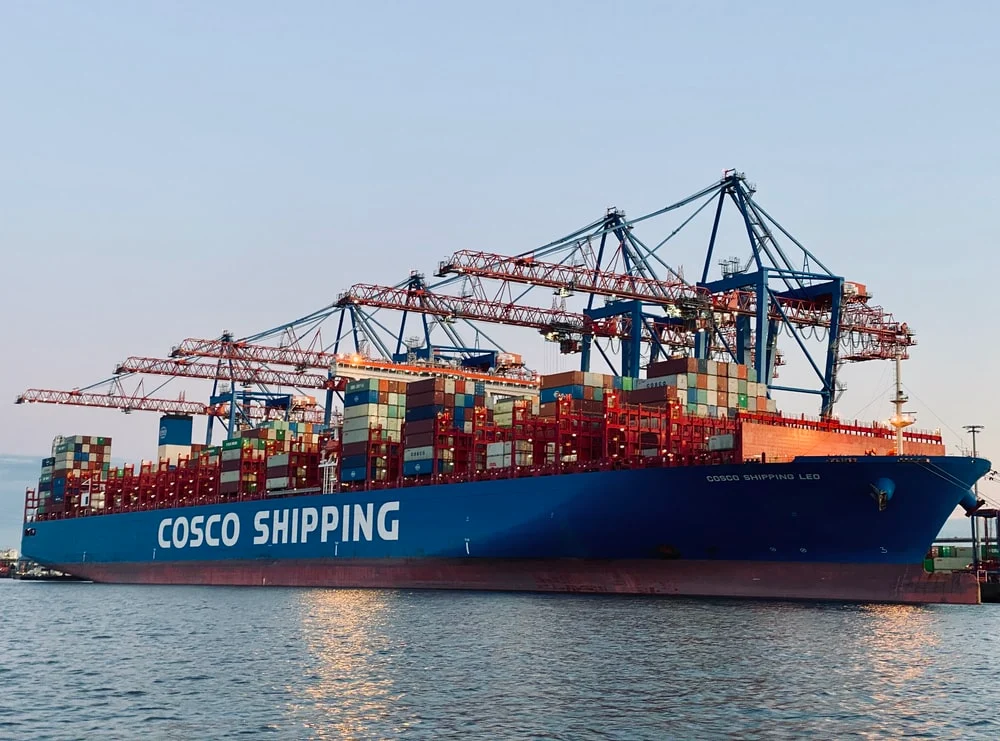Customs clearance is a process that every international shipment needs to go through before getting released for delivery. It can take anywhere from one day up to three weeks.
In the customs clearance procedure, customs brokers represent importers and exporters.
They are responsible for dealing with customs regulations and laws as they apply to trade law of customs duties, international shipping, tariffs, quotas, sanctions, and embargoes.
The customs brokerage ensures that all imported or exported goods meet the customs declaration requirements.
What is the whole customs clearance procedure, read on and find out if you’re going to import from China!

What is Customs Clearance?
Before exporting or importing goods internationally, the shipper must complete customs clearance.
This process ensures that the correct duties and taxes have been paid on the shipment and that all necessary documentation is in order.
During custom clearance, if a shipment is clear, the shipper will provide documentation confirming the payment of dues. It allows the shipment to be processed and delivered.
If a consignment still needs clearance, customs will hold it until the correct documentation and payment of taxes.
In addition, various customs and trade restrictions exist globally.
A specialist in customs clearance is essential for any comprehensive world business importing or exporting products.
Now, we will take a look at the customs clearance process. Let’s see what we’ve got here!
Suggested reading: Customs broker
Following The Customs Clearance Procedure

Cross-border shipping entails a few specific processes.
This post goes through the whole process of customs clearance, as well as provides clear answers to the frequently asked questions:
1. Paperwork Verification
A customs official verifies that the documents have been completed, including all bank transfer fees and shipping bills with the correct shipping label.
Commercial invoices are necessary for international shipment with all the paperwork and accurate value of the goods.
After verifying the documents, the goods will be identified by a shipper’s and receiver’s contact information that appears on the document.
The export date and airway bill number are necessary while shipping to the other countries.
Suggested reading: Customs commercial invoice
2. Customs Officer Check
A customs officer checks the duties and taxes levied on a shipment.
He will review the documents to comply with the customs regulations of the importing country, according to the type of merchandise and its value.
In case the value of items falls within a tax bracket, customs officers will check the payment of the taxes and duties.
Officer will review the additional fees or fines to make sure everything is in place.
Moreover, the customs clearing agent’s work entails communicating with the customs authorities and ensuring a smooth shipment for your items.
Filling out the detailed paperwork is not simple.
As a result, these professionals may help you fill out all necessary papers and overcome any barriers your consignment may encounter using their knowledge and experience.
Suggested reading: Customs power of attorney
3. Payments
If there are any outstanding taxes or customs fees, customs will request that you pay them.
There are two payment options: DDU (Delivered Duty Unpaid) and DDP (Delivered Duty Paid).
DDU implies that the seller should ensure the safe delivery of goods to a designated destination, covering all transportation costs and assuming risks in transport.
Therefore, a shipment is labeled as DDP if payment of taxes and duties is clear. You get these services at a set price when you pay for a label.
Many buyers are unaware of the shipping costs involved with international purchases.
It is also possible that customs duties (customs clearance charge) will be charged at both ends, causing additional expenses.
This procedure may be costly since brokers have varying commission rates (especially independent customs brokers).
Customs inspections, storage, late payment, and other costs might be incurred, which would impact the overall delivery charge.
Suggested reading: Customs bond
4. Release Of Shipment
After paying taxes and duties and all the documents are provided, shipments are released according to international trade laws.
From here, if paperwork, duties, and taxes are clear, the items should be delivered to the target place.
Experienced shipping firms and brokers can guarantee that all documents are complete and accurate, displaying correct financial and business information and a fair price for goods.
A Fast , Easy and Cheap Way to Ship from China
Do not hesitate to contact AsianDavinci at any time regarding your shipments from China.
FAQs

Final Thoughts

The customs clearance procedure is an essential component of any cross-border trade transaction.
While large companies have departments and staff dedicated to this challenging process, smaller firms and startups may find it challenging to navigate the complexities of customs clearance.
Importing and exporting customs clearance are both complex processes essential for the whole process.
On the other hand, importing involves a thorough examination of the goods and paying duties and import taxes. The process starts with customs in both countries.
They’re responsible for checking if an item was imported or exported as claimed by its original owners before permitting whether these goods can legally enter another territory.
